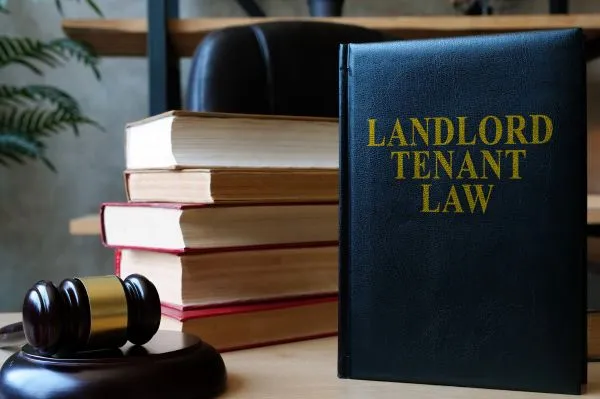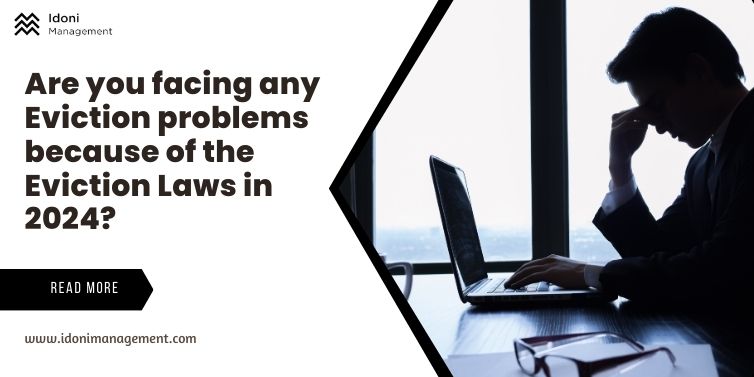Facing eviction issues due to 2024’s updated laws?
Are you facing the stressful prospect of eviction in Connecticut? You’re not alone. Whether you’re a landlord figuring out how to handle tricky eviction, or a tenant trying to understand your rights, the process can seem challenging. But don’t worry, we’re here to help you.
In this blog, you’ll learn the most frequently asked questions regarding eviction laws in Connecticut.
Common Questions and Answers on Eviction
1. How does the eviction process work in CT?
The landlord generally serves the tenant with a notice to quit, informing the tenant that they need to leave the property within a certain period, to start the eviction process. If the tenant fails to comply, the landlord may start legal action by submitting a summons and complaint to the court. Following that, the matter will go to a hearing where both sides will be able to present their cases and reasons. If the landlord wins the case, the court may grant a judgment for possession, which would enable the landlord to get a warrant of execution to carry out the eviction.
2. What are the problems with eviction?
Tenants and landlords might face several difficulties during an eviction. The process can be expensive and time-consuming for landlords, particularly if there are court cases involved. Tenants who are going to be evicted could go through financial difficulties, be displaced, and have trouble locating new accommodation.
3. How long does eviction stay on record in CT?
In Connecticut, a tenant’s eviction history might stay on their record forever, which could make it more difficult for them to find accommodation in the future. Eviction records are kept on file by Connecticut law, which emphasizes how important it is to settle eviction disputes peacefully.
If you’re thinking about how to remove eviction from the record, consider negotiating with your landlord, seeking legal advice for expungement, or proving the eviction was resolved or wrongful. Taking these steps can help improve your housing options in the future.
4. What is a good cause for eviction protection in CT?
Connecticut law considers various grounds for eviction, including nonpayment of rent, lease violations, and material breaches of the lease agreement. Landlords must have a valid reason or “good cause” for evicting a tenant and must follow all legal procedures outlined in state law.
5. How much does it cost to evict someone in CT?
The cost of evicting someone could vary based on several parameters, including court expenses, lawyer fees, and the case’s complexity. Recent research shows that the average cost of an eviction in Connecticut is between $1,500 and $3,500. This amount includes costs for filing fees, attorney fees, and service of process.
6. How do I clear an eviction in CT?

Since eviction records are normally kept on file forever, it might be difficult to have an eviction record erased in Connecticut. Tenants may, however, be able to reduce the effects of being evicted by, for example, communicating with the landlord to get the record sealed or erased or by presenting proof of additional reasons on future rental applications. Tenants can better manage the eviction and removal process by obtaining legal counsel from an experienced attorney.
7. Who serves Notice to quit in CT?
Landlords are responsible for serving a notice to quit to tenants who are in violation of the lease agreement or facing eviction. The notice to quit must be delivered in writing and comply with specific legal requirements, including providing the tenant with a specified period to remedy the violation or vacate the premises. Failure to serve a proper notice to quit can invalidate the eviction proceedings, so landlords should ensure compliance with state law when initiating the eviction process.
8. Can you break a lease in CT?
Yes, tenants in Connecticut may have the right to break a lease under certain circumstances, such as the landlord’s failure to maintain the property in a habitable condition or violations of the lease agreement.
Additionally, Connecticut law allows tenants to terminate a lease early if they are victims of domestic violence and need to relocate for safety reasons. However, tenants should review their lease agreement and consult with a legal professional to understand their rights and obligations before breaking a lease.
9. What are the rights of a tenant in CT?
Tenants in Connecticut have various rights under state law, including the right to
- A habitable living environment
- Protection from discrimination,
- Right to privacy
- Right to due process in eviction proceedings
Additionally, tenants have the right to withhold rent or repair and deduct if the landlord fails to address essential repairs or maintenance issues. Understanding Connecticut landlord-tenant laws and rights can help them advocate for themselves and seek recourse when necessary.
10. How hard is it to evict a tenant in CT?
Evicting a tenant in Connecticut can be complex and time-consuming, as landlords must adhere to strict legal procedures and provide tenants with due process rights. The difficulty of evicting a tenant can vary depending on factors such as the grounds for eviction, the tenant’s willingness to contest the eviction, and the efficiency of the court system. Landlords should be prepared to invest time and resources into the eviction process and seek legal assistance if needed to navigate the process effectively.
11. Can I evict my roommate in CT?
Evicting a roommate in Connecticut can be challenging, especially if the roommate is a co-tenant named on the lease agreement. In such cases, landlords typically cannot evict a roommate without cause unless the lease allows for it or the roommate voluntarily agrees to leave.
If the roommate is not named on the lease and does not have a formal tenancy agreement, the process may be simpler, but landlords should still follow legal procedures and provide proper notice before taking action.
12. How do I evict a tenant in CT without a lease?
Tenants may still be eligible for specific legal protections under Connecticut law, such as the right to a comfortable place to live and protection from unlawful eviction, even in the absence of a formal lease agreement. Landlords must follow the same legal procedures, such as delivering a notice to quit and filing a summons and complaint with the court, to evict a tenant who does not have a lease. Landlords who want to make sure they are following all applicable rules and regulations should speak with an attorney.
13. How do I evict a squatter in CT?
Evicting a squatter in Connecticut involves following the legal eviction process outlined in state law, which typically requires serving a notice to quit and filing a summons and complaint with the court.
However, eviction proceedings for squatters may differ from those for traditional tenants, so landlords should seek legal guidance to ensure compliance with applicable laws and procedures.
Additionally, landlords should refrain from using self-help measures, such as changing locks or removing belongings, as this can lead to legal liability.
14. Does CT have squatter’s rights?
Connecticut does not have specific “squatter’s rights” laws, but squatters may still have legal protections under adverse possession laws if they meet certain criteria, such as openly occupying the property for a continuous period and paying property taxes.
However, adverse possession claims can be difficult to establish and are subject to strict legal requirements. Landlords should seek legal assistance to address squatter situations promptly and protect their property rights.
Conclusion
Handling the eviction process and understanding your rights and obligations as a landlord or tenant in Connecticut can be challenging. If you have specific questions or require legal assistance, consider consulting with a qualified attorney crafted to your situation. Remember, knowledge is power, and being informed can help you navigate the complexities of the legal system with confidence and clarity.
Schedule a free 20-minute consultation with our team of experts, we are ready to provide you with the support and guidance needed to manage your properties effectively.





